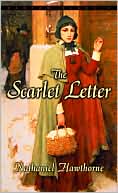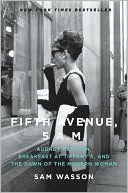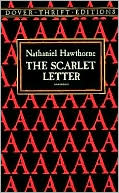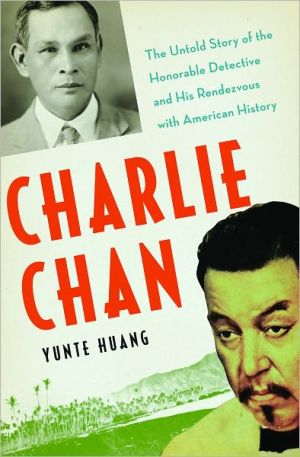Children of Job: American Second Generation Witnesses to the Holocaust
Focusing on the novels and films of daughters and sons of Holocaust survivors, this book sheds light on the relationship between the Holocaust and contemporary Jewish identity. It is the first systematic analysis of a body of work that introduces a new generation of Jewish writers and filmmakers, as well as revealing how the survivor's legacy is shaping - and being shaped by - the second generation. Carefully studying the work of these contemporary children of Job, Berger demonstrates how the...
Search in google:
Focusing on the novels and films of daughters and sons of Holocaust survivors, this book sheds light on the relationship between the Holocaust and contemporary Jewish identity. It is the first systematic analysis of a body of work that introduces a new generation of Jewish writers and filmmakers, as well as revealing how the survivor's legacy is shaping - and being shaped by - the second generation. Carefully studying the work of these contemporary children of Job, Berger demonstrates how the offspring, like the survivors themselves, represent a variety of orientation to Judaism, have significant theological differences, and share the legacy of the Shoah. Berger clearly shows that members of the second generation participate fully in both the American and Jewish dimensions of their identity and articulates distinctive second-generation theological and psychosocial themes.Library JournalBerger, Raddock Eminent Scholar chair of Holocaust studies and director of Judaic studies at Florida State University, examines some important novels, short stories, and films created by the children of Holocaust survivors. He sets the stage by briefly discussing such groundbreaking nonfiction works as Helen Epstein's Children of the Holocaust (LJ 5/15/79), which was one of the first books to consider the psyche of the second generation. Berger excels at exploring books that are not easy to categorize or pigeonhole, such as Art Spiegelman's Maus. Spiegelman represents a kind of paradigm for Berger. Although he was born after the Holocaust, the Holocaust memories of his father were so suffocatingly real that Spiegelman's art became a safety valve and a means for the son to survive. The heavy psychological burden of the Holocaust figures in all the works of the artists examined here. This scholarly book is recommended for academic and large public libraries with strong Jewish studies collections.Paul Kaplan, Lake Villa District Lib., Ill.
ForewordAcknowledgmentsCh. 1Introduction1The Second-Generation Witness: Inheriting the Holocaust1Particularism and Universalism4Children of Survivors and Children of Job5Theological Sequelae8Universal Questions8The Search for Tikkun10Ch. 2From Pathology to Theology: The Emergence of the Second-Generation Witness13The American Second Generation: A Brief History16A New Generation of Jewish Writers and Filmmakers19Post-Auschwitz Covenant Theology21Elie Wiesel and the Additional Covenant23Irving Greenberg and the Voluntary Covenant25Emil L. Fackenheim and the Search for a Post-Aushwitz Tikkun Olam28Richard L. Rubenstein: "God after the Death of God"31Ch. 3Second-Generation Novels and Short Stories: Jewish Particularism35Damaged Goods37Summer Long-a-Coming48Maus59Short Stories: A Biographical Note71Stories of an Imaginary Childhood and While the Messiah Tarries72Dancing at the Club Holocaust and Forms of Captivity and Escape75Elijah Visible79Ch. 4Second-Generation Novels and Short Stories: Jewish Universalism87The Flood88White Lies95Dancing on Tisha B'Av and Winter Eyes110Ch. 5Second-Generation Documentaries and Docudramas: Jewish Particularism129Kaddish131A Generation Apart136Breaking the Silence140Half-Sister, Everything's For You, and In Memory146Angst150The Docudramas: The Dr. John Haney Sessions and Open Secrets152Ch. 6Second-Generation Documentaries and Docudramas: Jewish Universalism159As If It Were Yesterday162Weapons of The Spirit168So Many Miracles173Voices From The Attic177Ch. 7Whither The Future?183Working through the Holocaust184Riders towards the Dawn187Children of Job and Covenantal Judaism187Notes191Index215
\ Library JournalBerger, Raddock Eminent Scholar chair of Holocaust studies and director of Judaic studies at Florida State University, examines some important novels, short stories, and films created by the children of Holocaust survivors. He sets the stage by briefly discussing such groundbreaking nonfiction works as Helen Epstein's Children of the Holocaust (LJ 5/15/79), which was one of the first books to consider the psyche of the second generation. Berger excels at exploring books that are not easy to categorize or pigeonhole, such as Art Spiegelman's Maus. Spiegelman represents a kind of paradigm for Berger. Although he was born after the Holocaust, the Holocaust memories of his father were so suffocatingly real that Spiegelman's art became a safety valve and a means for the son to survive. The heavy psychological burden of the Holocaust figures in all the works of the artists examined here. This scholarly book is recommended for academic and large public libraries with strong Jewish studies collections.Paul Kaplan, Lake Villa District Lib., Ill.\ \








